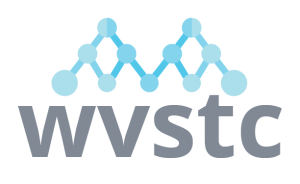Presentation Title: “Microcredentials & Open Learning WV: Helping students achieve their postsecondary educational goals in less time at a lower cost.”
Microcredentials and Open Learning WV offer flexible, affordable pathways through stackable micro-credentials and open educational resources. This session explores how these initiatives help West Virginia meet workforce needs, support learners, and advance the state’s credential attainment goals.
Credential WV introduces a model built around incremental, stackable micro-credentials to meet workforce needs, expand access, and support credential attainment across the state. Alongside this, the Open Learning WV initiative supports affordability and innovation by promoting the use of Open Educational Resources (OER) and open pedagogy—helping institutions reduce costs for students while enhancing academic quality.
As West Virginia reimagines how higher education can respond to both student and employer needs, these two statewide initiatives are helping to define a more responsive, student-centered model for postsecondary learning.
Micro-credentials are short, focused credentials that certify specific skills, knowledge, or competencies. Designed to be embedded within or alongside academic programs, they allow students to earn meaningful recognition for workforce-relevant achievements—at a lower cost and in less time. Meanwhile, Open Learning WV enables institutions to deliver these and other credentials using flexible, low- or no-cost learning materials, further improving affordability and access.
This session will explore how institutions across West Virginia are leveraging Credential WV and Open Learning WV to formalize micro-credential pathways, reduce student costs through OER, and better align programs with both learner needs and labor market demands. Together, these initiatives support the state’s Climb initiative, which aims for 60% of West Virginians to earn a postsecondary credential by 2030.
Five key audience groups most likely to be interested in the session:
Faculty, Academic Leadership, and Curriculum Developers
Workforce and Economic Development Professionals
Technology and Systems Administrators
Higher Education Policy and Strategy Leaders
Professional and Continuing Education Staff
- Information Technology Staff
- Supervisors, Managers, Directors
- K-12 Teachers
- Higher Education Faculty
- Government
- Non-profit organizations
- microcredentials, open educational resources, #credentialWV
Dr. Chris Rasmussen (Vice Chancellor for Academic Affairs, WVHEPC) and I, representing both WVHEPC and the Community and Technical College System, are leading the statewide design and implementation of Credential WV and Open Learning WV. We’re speaking on this topic because we’re directly involved in shaping how micro-credentials and Open Education Resources support affordability, workforce alignment, and expanded access across West Virginia.


Review this entry
You must be logged in to post a comment.